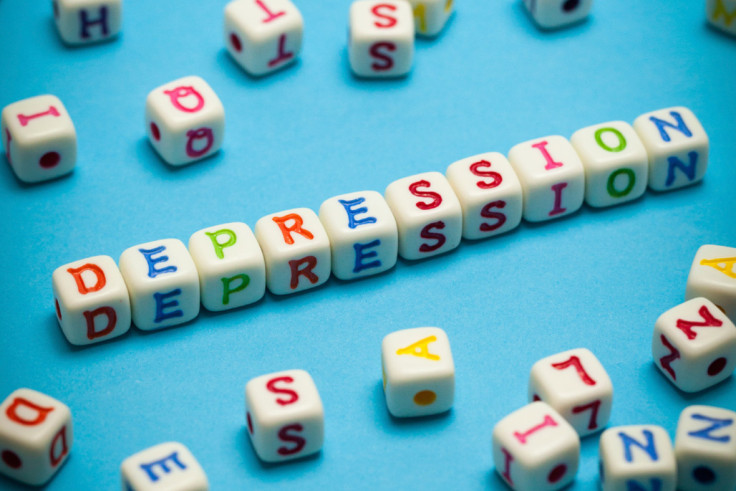What are high-functioning depression and anxiety and what are the dangers?
Stereotypes of what mental illness looks like means many people suffer in silence.

Dane Cobain, a 27-year-old social media marketer and writer, has suffered from depression for over a decade. A couple of years ago, he developed severe anxiety. He spends a lot of time writing and throws himself into his work, but this has its downfalls.
"The problem is that sometimes if I'm working too hard and I'm also struggling with things then sometimes I burn out and have a big crash that can last for quite a while," Cobain says.
"People who don't know me well might not realise that I struggle with it, because I put myself out there with my work - I also do spoken word and perform at open mic nights, but then one of my favourite poems to perform is about anxiety," he adds. "But people that know me well know about it all. I try not to talk about it at work because there's still something of a stigma attached to mental health issues."
More often than not, depression and anxiety are still stereotyped in the same way. On television, a character may cry, withdraw from activities and suffer from insomnia. But while these are signs of a problem, mental illness can manifest in different ways in different people, no matter how "together" they seem.
But because of the stigma attached to mental illness, many people keep their problems hidden. They lead their lives as normal – going to work, socialising and functioning normally on the outside – while suffering in silence. Although not an official term, some have dubbed it "high-functioning depression" or "high-functioning anxiety".
"High-functioning depression is not a category that appears in the textbooks," says Carol Landau, a clinical professor of psychiatry and medicine at Brown University.
Although people in this category tend to perform well at work and in superficial social relationships, Landau says the symptoms of depression may appear at night.
"Many people with high functioning depression feel more of a loss of interest," Landau says. "Two other interesting subcategories are awareness and lack of awareness. Most people with high-functioning depression realise, especially when they are alone, that they are not doing as well as they could or as well as they've done in the past."
Some symptoms are such that a person isn't aware they are depressed, such as irritability, guilt or overeating.
In some cases, a person with depression or anxiety may hide their condition with jokes and laughter - because it doesn't seem possible that a chipper person can be depressed. A blog post in Psychology Today dubs this "smiling depression" - in which humour is used as a defence mechanism to mask how they really feel.

Sarah Graham, a journalist living in London, has mixed depression and anxiety, but says she can still get on with day-to-day life for the most part.
"A friend of mine once described it as 'coping privilege' which I quite like as a way of looking at it, because I'm lucky in lots of ways that it's obviously nowhere near as debilitating as mental illness can be for some people," Graham says.
"That said, it does make everyday life more of a struggle - everything from forcing myself to get out of bed and into the shower, to leaving the house on time or taking the tube (which triggers my anxiety) when I don't have time to take the bus - all of that is a constant day-to-day battle with my own mind, and I do sometimes wish I could just give in to it and stop 'functioning' quite so well."
On the surface, high-functioning depression or anxiety appears to be easier to deal with, but this is not the case. There are dangers associated with keeping feelings bottled up, such as failing to seek help when it is desperately needed.
"I've said in the past that people think that high functioning depression is better than low functioning depression, but the problem with high functioning depression is that a person is not getting access to help," Landau says. "Many of the women I see are perfectionistic and therefore have difficulty asking for help."
Sarah says she didn't seek help for years, because of the prevailing stereotype of what depression and anxiety should look like.
"I didn't for years, because I had this idea in my head of what depression and anxiety were like and mine didn't seem severe enough to be worth wasting a doctor's time over," she says. "It also means that because I cope pretty well most of the time - and because I'm stubborn as hell - I have a really hard time admitting when things are not so great.
"And at the more extreme end, because I 'seem fine', there have been occasions where I've opened up about my mental health and then not been believed - which definitely feeds into that thing of feeling that my problems aren't serious enough to be deserving of sympathy or help."
Marjorie Wallace, chief executive of the mental health charity SANE, says people who have depression or anxiety and succeed in concealing it are more at risk than those who seek early treatment.
"The more that they seek to deny it – due to stigma or other reasons – the greater the damage that can be done," Wallace says. "It is possible to be successful despite these conditions, at least for a while, but it is wiser to admit and accept them and seek the support and treatment needed."
© Copyright IBTimes 2024. All rights reserved.






